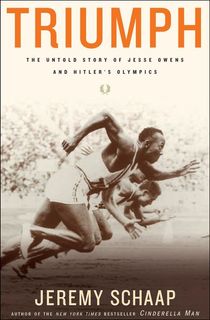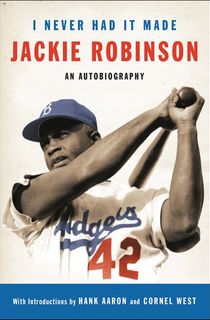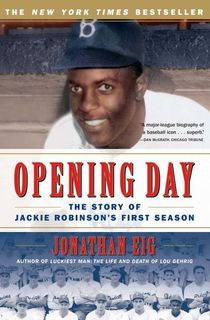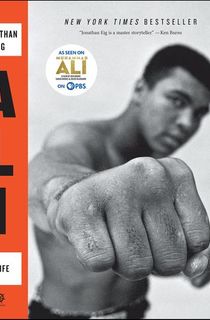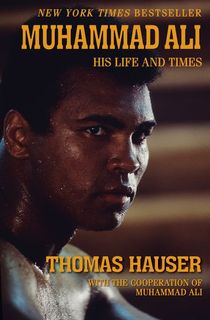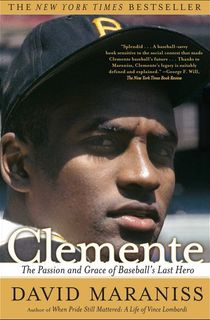While athletes and sports stars are often referred to as inspirational, there are those who inspire simply by dint of their exploits on the field, and then there are those whose inspiring story goes far beyond the sport itself.
Perhaps they have risen to their position by overcoming great adversity, or they have used their platform to help others and further the cause of justice. Whatever the case may be, these 9 inspiring athletes from across the years have some of the most dramatic stories in sporting history.
Jesse Owens
Born in 1913, Jesse Owens made world history when he won four gold medals at the 1936 Summer Olympics in Berlin, where he “single-handedly crushed Hitler’s myth of Aryan supremacy.” More than merely showing up racists and fascists, however, Owens has been called “perhaps the greatest and most famous athlete in track and field history.” In fact, a little over a year before his Olympic success, Owens had already set three world records and tied another at the Big Ten track meet in Ann Arbor, Michigan, all in the space of what has been hailed as “the greatest 45 minutes ever in sport.”
Alice Coachman

The first Black woman ever to win an Olympic gold medal, Alice Coachman was also the only American woman to win a gold medal at the 1948 Summer Olympics, where it was presented by King George VI. Upon her return to the United States, she was a celebrity, becoming the first Black woman to sign an endorsement deal for a major international product when Coca-Cola featured her on billboards alongside Jesse Owens. Despite these accomplishments, however, 1948 also marked the end of Coachman’s athletic career, as she dedicated the rest of her life to education and vocational training for young people.
Jackie Robinson
Inducted into the Baseball Hall of Fame in 1962, Jackie Robinson is most famous as the first Black player to play in Major League Baseball in the modern era. But Robinson’s contributions go far beyond breaking the color line that brought an end to racial segregation in professional baseball. Because his status as the first Black player in the MLB thrust him into the national spotlight, he was able to use his position to advance the civil rights movement overall, eventually becoming the MLB’s first Black television analyst as well as the first Black vice president of a major American corporation.
Bethany Hamilton

Nobody wants to become famous for the reason Bethany Hamilton did. In 2003, at the age of 13, the young surfer was attacked by a 14-foot-long tiger shark which bit off her left arm just below the shoulder. Despite this, Hamilton was back in the water within a month of the incident and had entered her first major surfing competition within three months.
The following year, she published the book Soul Surfer, detailing the event and her recovery, as well as her devout Christian faith, which was adapted into the 2011 movie of the same name starring AnnaSophia Robb. According to her website, Hamilton is a public speaker who is “motivating audiences worldwide to live their life with more tenacity, courage, and faith.”
Muhammad Ali
Born Cassius Marcellus Clay Jr., almost everything about Muhammad Ali’s life marks him as inspirational. Often regarded as the greatest heavyweight boxer of all time, Ali was also a conscientious objector who lost many of his boxing titles—as well as years of peak athletic performance—to his refusal to participate in the Vietnam War. He changed his name after converting to Islam, and became a figure of pride and aspiration during the civil rights movement and throughout his career, much of which was devoted to philanthropy and activism.
Simone Biles

Biles at the 2016 Olympics.
Photo Credit: WikipediaWith seven Olympic medals, including four gold medals, and more than 30 World Championship medals, Simone Biles is the most decorated gymnast in history, a fact that is especially impressive considering that Biles spent her youth in the foster care system. Yet, despite her considerable athletic accomplishments, Biles’ most inspiring moment might just involve not doing something.
In a field where athletes are often encouraged to push themselves too hard and deprioritize their mental health, Biles made headlines by withdrawing from the competition that she was heavily favored to win during the 2020 Summer Olympics in Tokyo, due to developing “the twisties,” a temporary condition in which a gymnast loses air awareness during certain types of movement.
Roberto Clemente
The first Latin American player inducted into the National Baseball Hall of Fame, Roberto Clemente played 18 seasons for the Pittsburgh Pirates and was the winner of a World Series MVP Award, but some of his greatest accomplishments occurred off the field. Born in Puerto Rico, Clemente devoted much of his life to charity work in Latin America and the Caribbean. In fact, he died in a plane crash when he was only 38 years old, while he was on his way to help deliver aid to the victims of the 1972 Nicaragua earthquake.
The MLB’s Commissioner’s Award, which is given to the player who “best exemplifies the game of baseball, sportsmanship, community involvement and the individual’s contribution to his team” was renamed the Roberto Clemente Award in his honor.
Wilma Rudolph

Called the fastest woman in the world, sprinter Wilma Rudolph was the first American woman to win three gold medals in track and field in a single Olympic Games at the 1960 Summer Olympics in Rome. Her speed and athleticism are all the more impressive because Rudolph had recovered from childhood polio that left her in a leg brace until she was 12 years old. Upon returning from her Olympic success, her hometown of Clarksville, Tennessee held a “Welcome Wilma Day” celebration which, at Rudolph’s insistence, became the first fully racially integrated municipal event in the city’s history.
Jack Johnson

Called the “Galveston Giant,” six-foot-tall Jack Johnson became the first Black world heavyweight boxing champion in 1908. Almost immediately, attempts began to find a “Great White Hope” to defeat him, leading former undefeated heavyweight champion James Jeffries to come out of retirement “for the sole purpose of proving that a white man is better than a Negro.”
Dubbed the “Fight of the Century,” the resulting bout was a rousing success for Johnson, who trounced his opponent. “I could never have whipped Johnson at my best,” a humbled Jeffries later said. “I couldn’t have hit him. No, I couldn’t have reached him in 1,000 years.” The outcome sparked race riots in 25 states, but also helped to set the stage for integration of professional sports of all kinds.
This post is sponsored by Open Road Media. Thank you for supporting our partners, who make it possible for The Archive to continue publishing the history stories you love.

